Summer 2023



We do not assume any legal liability or responsibility for the accuracy, completeness or usefulness of any information, apparatus, technique or process disclosed herein.









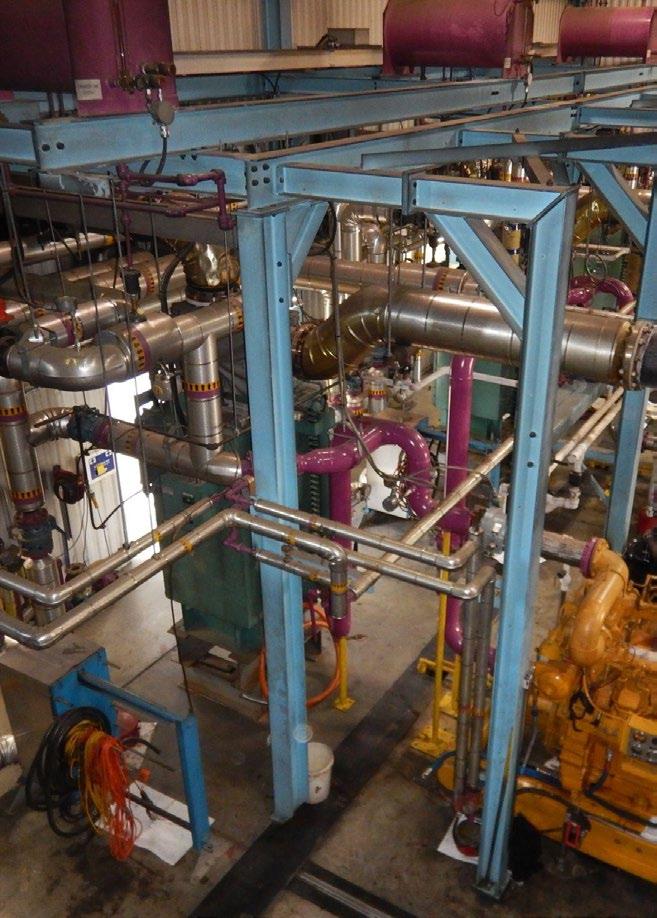





We do not assume any legal liability or responsibility for the accuracy, completeness or usefulness of any information, apparatus, technique or process disclosed herein.











Welcome to the 2023 Summer issue of our magazine, PEMAC
Now! After a brief hiatus, we're thrilled to be back with exciting updates to share. In this issue, we shine a spotlight on our incredible 1,500 members, who not only excel in their organizations but also dedicate their time as invaluable volunteers for PEMAC. We're immensely proud of their contributions, as they are the driving force behind our association's achievements.
We're delighted to report that our renowned MainTrain event made a triumphant return to its inperson format this past September in Toronto. The conference was a resounding success, with attendees expressing their joy in reconnecting after two years of virtual gatherings. We featured an exceptional lineup of speakers, including the renowned Doc Palmer, and celebrated the outstanding accomplishments of our members through our prestigious awards ceremony. For a detailed list of the winners, turn to page 12. The MainTrain planning committee, composed entirely of dedicated volunteers, wasted no time and has been diligently preparing for the 2023 edition of our conference, scheduled MainTrain 2023 for September 11-13 at the Fairmont Hotel in Winnipeg We are thrilled to bring this event to Manitoba for the first time, making it even more special As an organization that values and relies on volunteers, we announced the addition of a volunteer engagement specialist role during last year's MainTrain conference. To explore volunteer opportunities and access our dedicated volunteer website, visit www.pemac.org/members/volunteeropportunities and don't forget to refer to the Volunteer Handbook, available on our site!
Did you know that PEMAC has an average of approximately 120 volunteers actively engaged at any given time? Last year alone, our volunteers logged over 600 tracked hours, though we believe this is only a fraction of their actual commitment. With over 100 volunteer engagements and opportunities, there's no shortage of ways for our members to get involved and make a difference
In addition to our volunteer initiatives, PEMAC staff and board members have been diligently expanding our network by forging strategic partnerships with like-minded associations. We've had the privilege of speaking and exhibiting at conferences and tradeshows organized by esteemed organizations such as SMRP (Society for Maintenance & Reliability Professionals), CNAM (Canadian Network of Asset Managers), OARS (Ontario Association of Road Supervisors), and CAMA (Canadian Association of Municipal Administrators). Moreover, we're excited to announce that PEMAC and the Society for Maintenance & Reliability Professionals have recently signed a memorandum of understanding, fostering mutual benefits for our respective members.
Personally, I had the honor of representing PEMAC at two face-to-face meetings for the Global Forum on Maintenance and Asset Management (GFMAM), held in Bahrain and Sydney I’m excited for the next meeting of the GFMAM that will be in September and hosted by PEMAC alongside MainTrain in Winnipeg! Through these interactions, the significance of our organization and the achievements have shown through. We've achieved significant milestones in fostering connections, facilitating learning, and encouraging member contributions. However, there is still more work to do in raising awareness about maintenance and asset management, and highlighting how PEMAC can provide valuable support to professionals across industries throughout Canada
Thank you for reading our 2023 Summer issue of PEMAC Now! – we know you’ll discover insights on how you can connect with, learn more from, and contribute to our association. See you at MainTrain!
J.P. Pascoli, PEMAC President
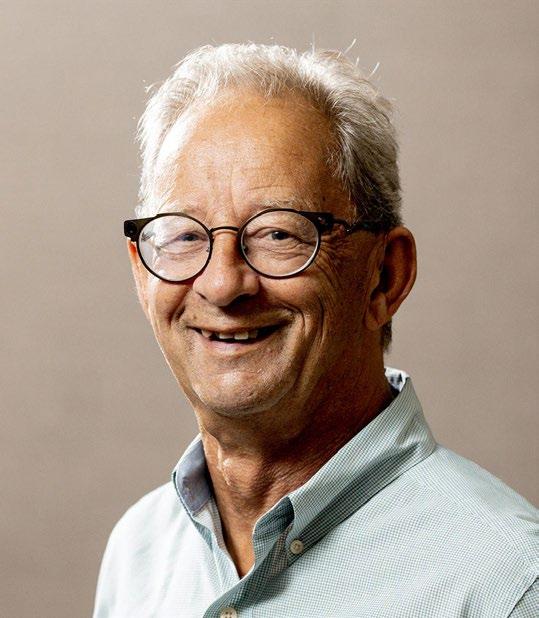
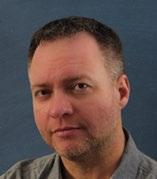
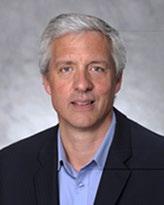
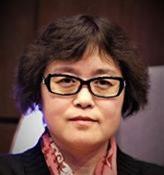
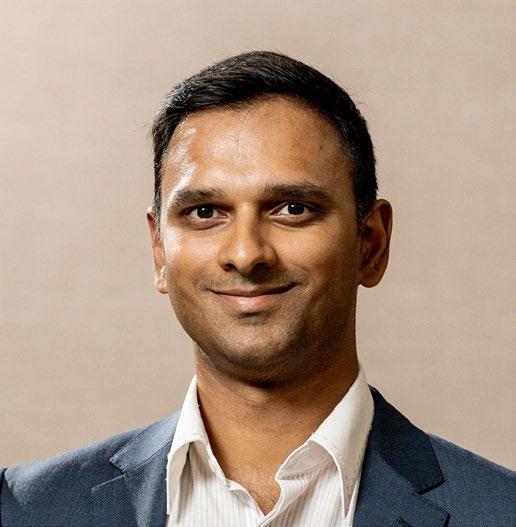
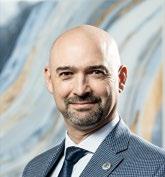


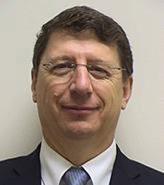
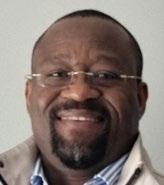

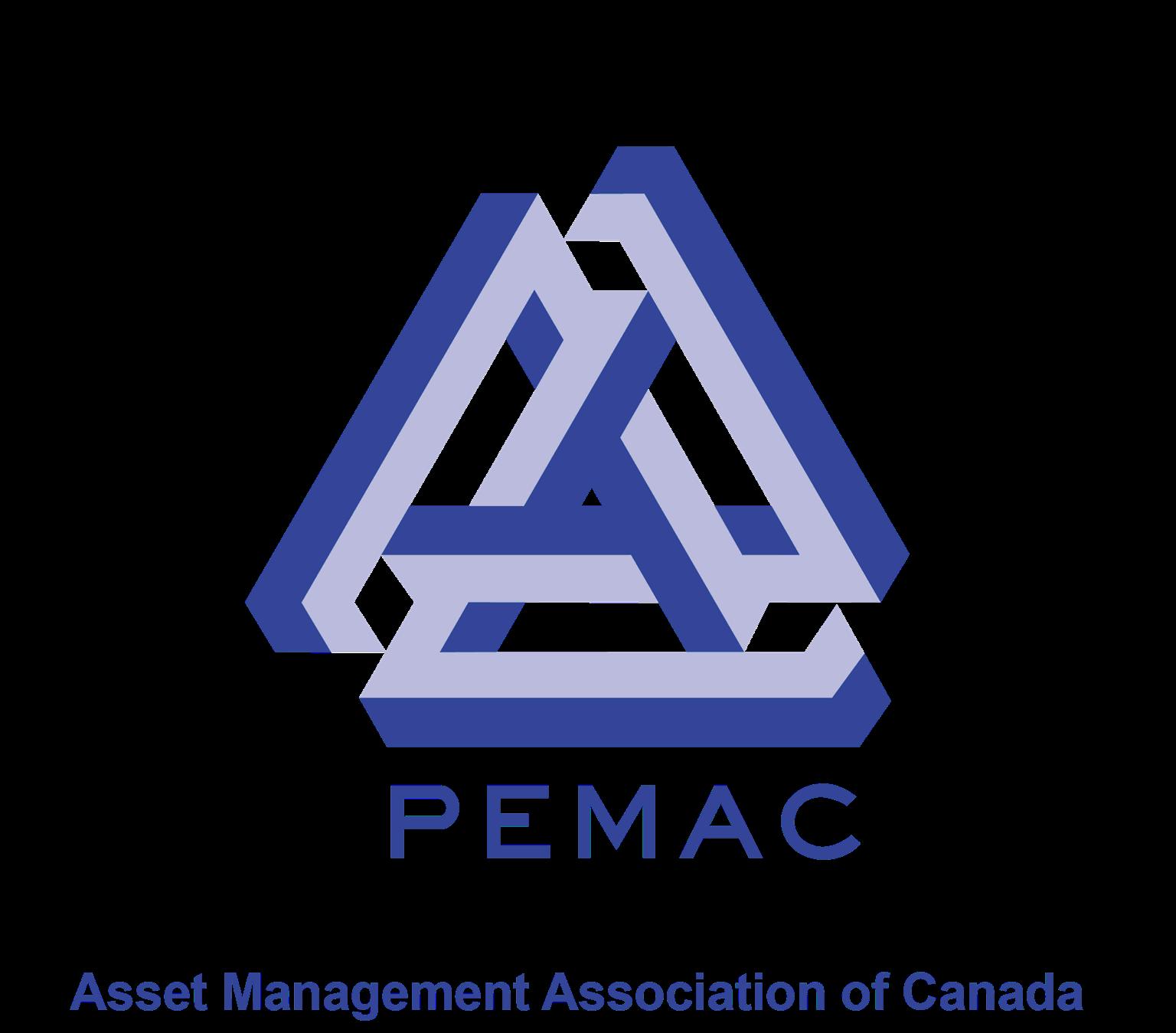 Principal Consultant Steppe Consulting Inc
Susan Lubell
Superintendent, Reliability Vale Canada
Vincent Okojie
Senior Advisor, Goreway Power Station and York Energy Centre Capital Power
Bill Mercer Maintenance Manager Irving Paper
Andrew Booker Principal Consultant Bora Consulting Inc.
Alp Bora
Rotating Chair Director, Asset Management & Reliability Cameco Corporation
Jean-Pierre Pascoli President Manager of Facilities Services
Simcoe Muskoka Catholic District School Board
Nigel D’Souza Vice President Maintenance Supervisor and Chief Engineer Grand River Foods
Li Xia (Virginia) Liu PEMAC Treasurer
Supervisor, Corporate Asset Management Town of Caledon
Rob Lash
Maintenance / Capex Manager FT Synthetics
Ryan Slade Principal Advisor TMS Asset Management
Principal Consultant Steppe Consulting Inc
Susan Lubell
Superintendent, Reliability Vale Canada
Vincent Okojie
Senior Advisor, Goreway Power Station and York Energy Centre Capital Power
Bill Mercer Maintenance Manager Irving Paper
Andrew Booker Principal Consultant Bora Consulting Inc.
Alp Bora
Rotating Chair Director, Asset Management & Reliability Cameco Corporation
Jean-Pierre Pascoli President Manager of Facilities Services
Simcoe Muskoka Catholic District School Board
Nigel D’Souza Vice President Maintenance Supervisor and Chief Engineer Grand River Foods
Li Xia (Virginia) Liu PEMAC Treasurer
Supervisor, Corporate Asset Management Town of Caledon
Rob Lash
Maintenance / Capex Manager FT Synthetics
Ryan Slade Principal Advisor TMS Asset Management
PEMAC Asset Management Association of Canada is a driving force in promoting excellence and advocating for maintenance and asset management practices.


PEMAC Chapters



Alberta President Dennis Heinzlmeir alberta@pemac.org
With a dedicated community of professionals, PEMAC members are making significant strides in championing this vital field. Through volunteering, participating in committees, and engaging in research initiatives, members actively contribute their expertise and insights to shape industry best practices, influence policies, and drive innovation.
Fort McMurray President
Nayef Mahgoub fortmcmurray@pemac.org
GTA President
Erika Mazza gta@pemac.org
Let's explore their impactful work through captivating images that showcase their contributions to the industry. Our Chapters are energized by the opportunity to reconnect and have organized several events to slow members to connect, learn and contribute.


Nova Scotia President Martha Myers nova-scotia@pemac.org
Quebec President Eric Martel quebec@pemac.org
Winnipeg President Neil Abercrombie winnipeg@pemac.org
Volunteering allows you to give back to the industry while being part of a community that shares common goals and values.
Inset: The tour at the Edmonton Waste Management Centre, included a presentation and tour by PEMAC Member and Certified Member Spencer de Clerk from the City of Edmonton.
Volunteering with PEMAC allows you to expand your knowledge and skills in maintenance and asset management through workshops, conferences, and networking with industry experts.
This enhances your career prospects and keep you updated with the latest trends and practices in the field!
Volunteering with PEMAC provides an excellent platform to network with professionals in the maintenance and asset management industry. You can connect with likeminded individuals, share experiences, and build relationships.




Being actively involved with a reputable association like PEMAC can enhance your career.
Volunteering with PEMAC offers opportunities to develop leadership and organizational experience.
You have the chance to make a positive impact on the maintenance and asset management profession.
It demonstrates a commitment to the field of maintenance and asset management and your dedication to continuous improvement.
The skills are transferable and can benefit you in various aspects of your professional and personal life.
Your contributions help advance the field, promote best practices, and support the professional growth of others.


Inset: The PEMAC Board of Directors meets monthly online and twice per year face to face. This photo was taken at the meeting held in advance of MainTrain 2022 in Toronto, ON.
Left to right: Bill Mercer, Andrew Booker, Cindy Snedden, Mike Crowell, J.-P. Pascoli, Nigel D’Souza, Cliff Williams, Susan Lubell, Rob Lash.
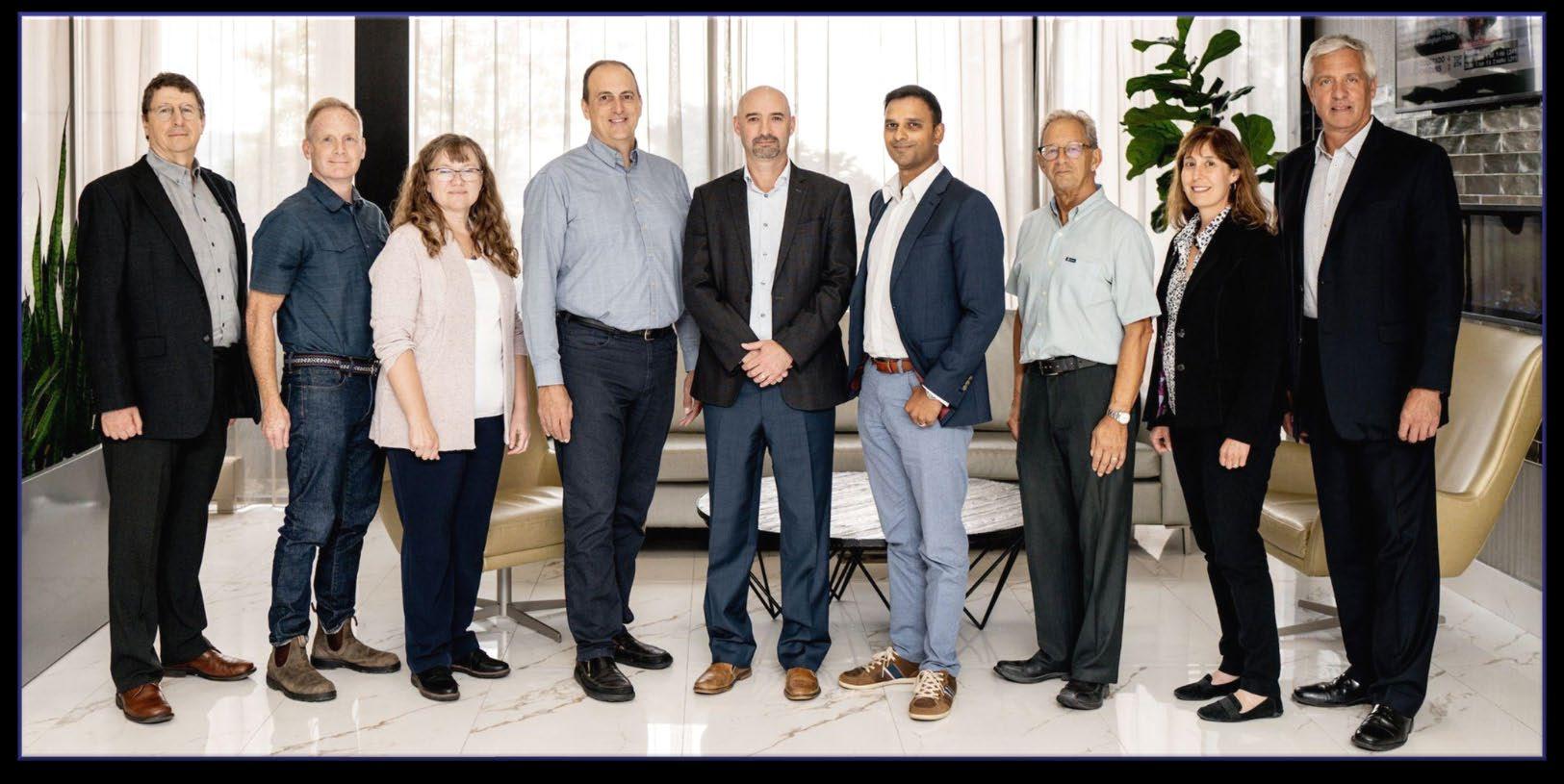
↑ Inset: J.-P. Pascoli and Nigel D’Souza represent PEMAC at the meetings of the Global Forum on Maintenance and Asset Management. This photo was taken at the most recent GFMAM face to face meeting held in conjunction with the Asset Management Council of Australia’s annual conference AMPEAK in April 2023. J.-P. is second from the right in the back row. Nigel was not able to attend the meeting. J.-P. Pascol and Susan Lubell represent PEMAC at the World Partners in Asset Management which also met in conjunction with AMPEAK. Sue, who serves as Chair of the WPiAM, attended the meeting remotely.
← Inset: The Nova Scotia Chapter held a meeting in Halifax on May 18, 2023, which featured two presentations as well as an open discussion and networking session.
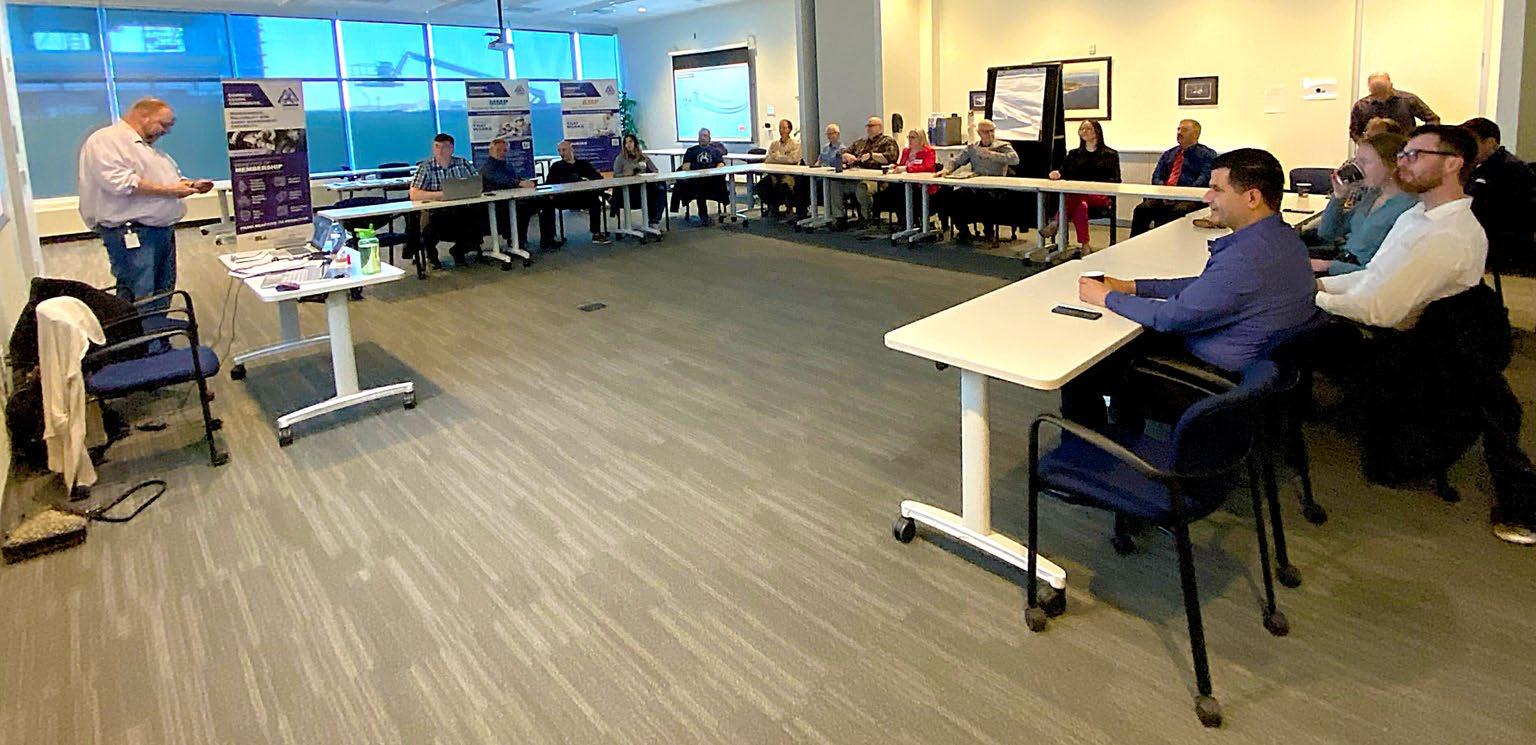
In the photo Chapter VicePresident, Warren Rogers is pictured giving a welcome and update on PEMAC activities.
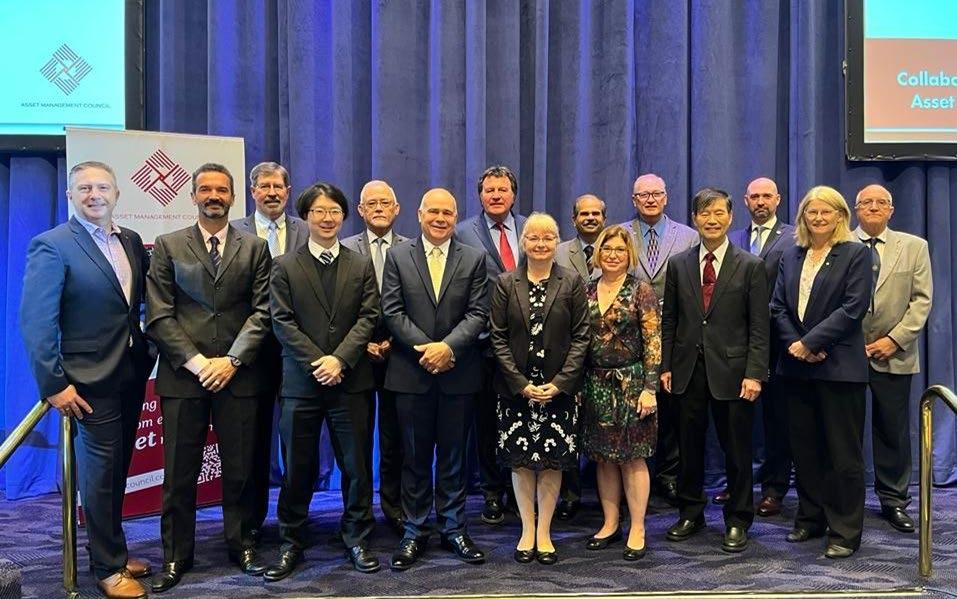
Inset: PEMAC’s Education and Professional Development manager, Nicolle Guillen, and Board member Rob Lash attended the FCM’s annual Municipal Asset Management Program (MAMP) partner’s workshop in Ottawa in March 2023. Participating since 2018, PEMAC is an esteemed partner in the FCM’s MAMP program which is designed to raise awareness and build capacity in the Municipal sector to advance in Asset Management practices. In the photo Nicolle is sharing information about PEMAC’s experience with online learning.
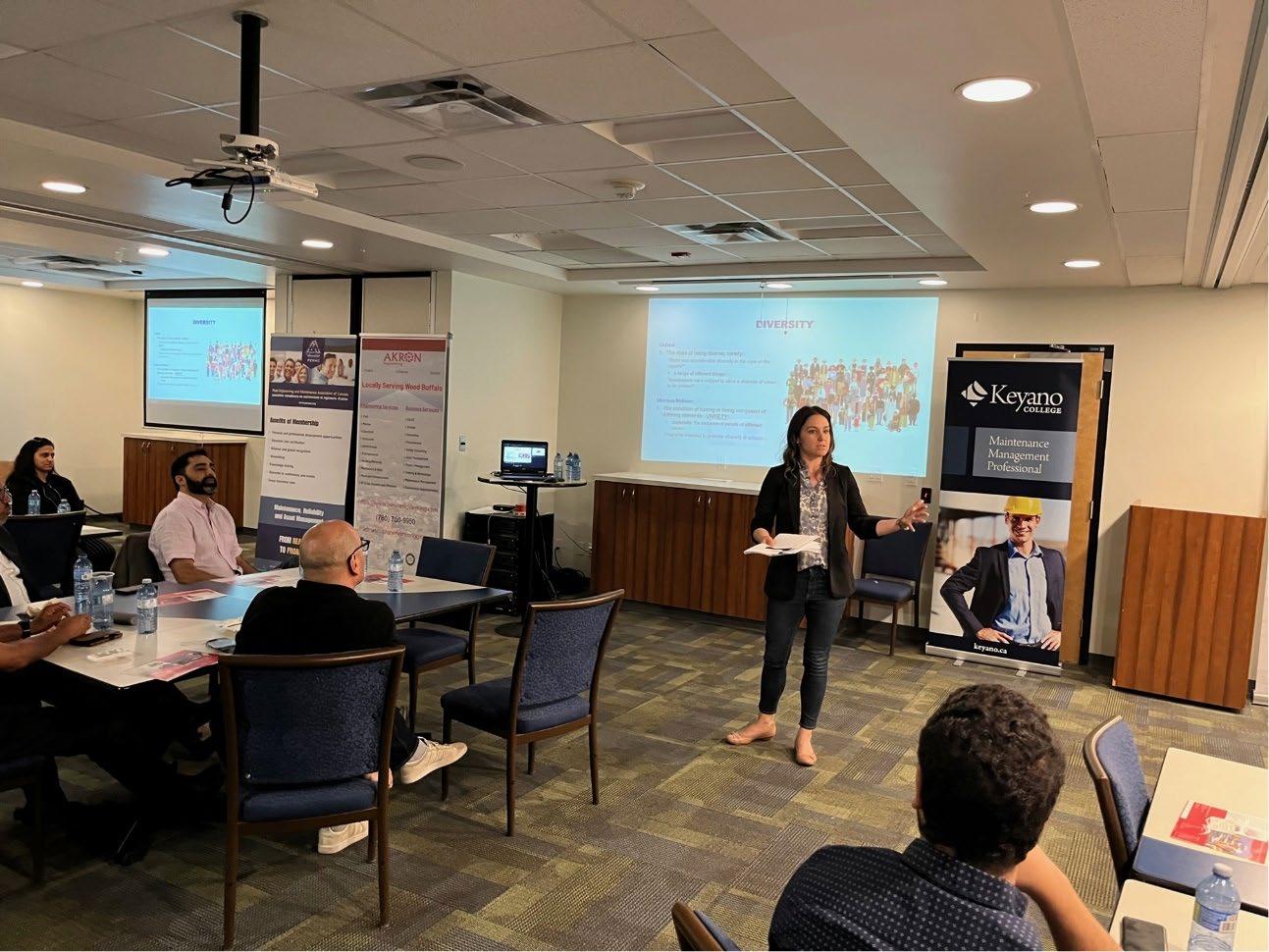
Inset: A tour of a nearby water / wastewater treatment plant was part of the FCM Workshop event. PEMAC’s experience with online learning.
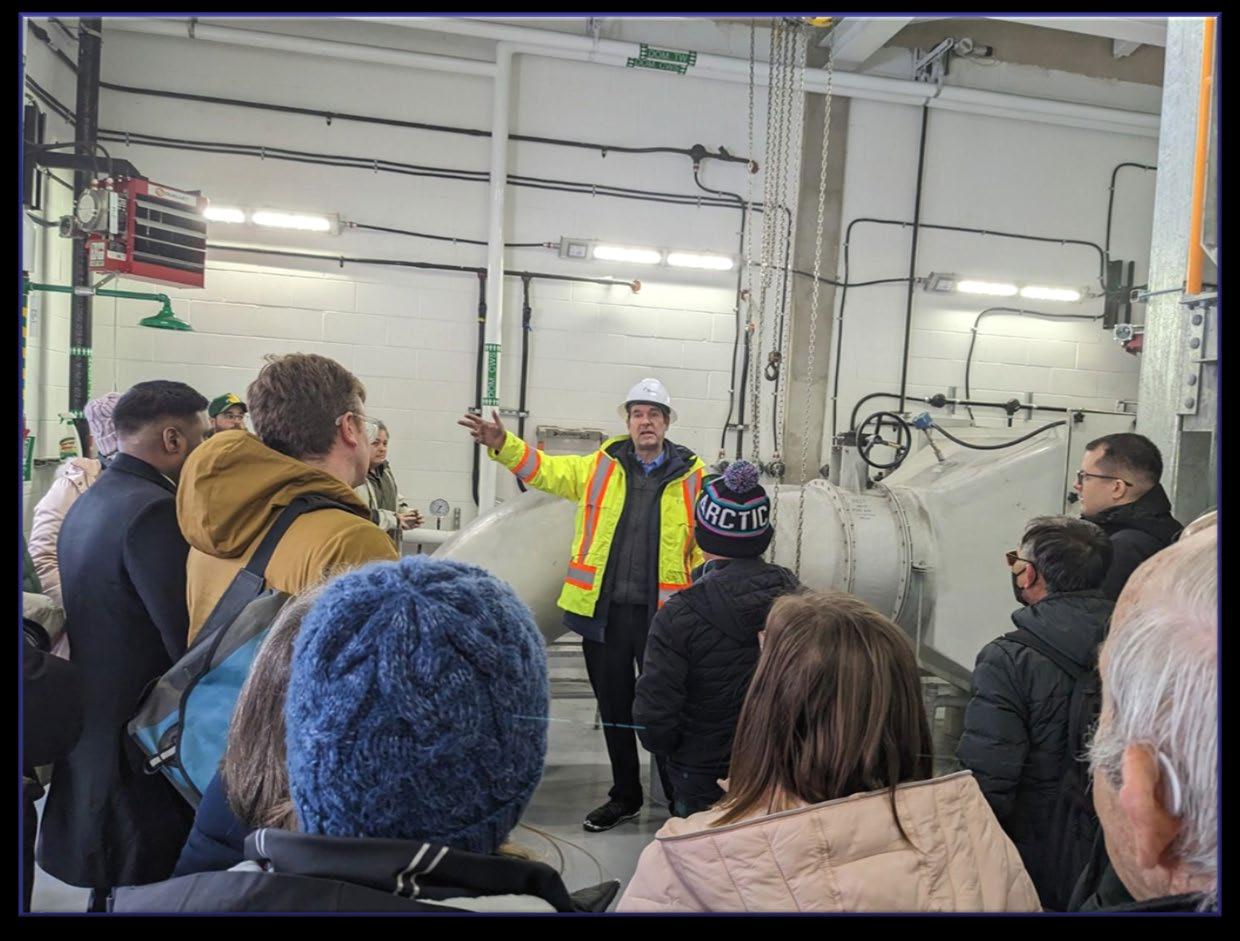
Inset: The Fort McMurray Chapter held a networking and professional development event that focused on the importance of diversity and equity.
Learn more about PEMAC’s Chapters across Canada, meet their executive teams and learn how you can connect and contribute to future events and initiatives.

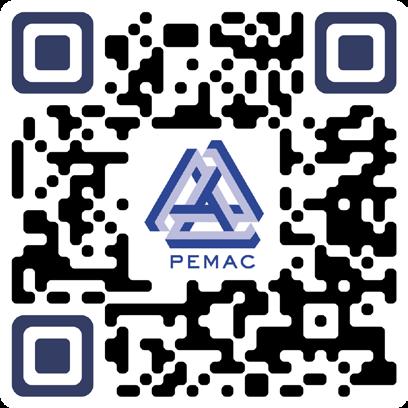
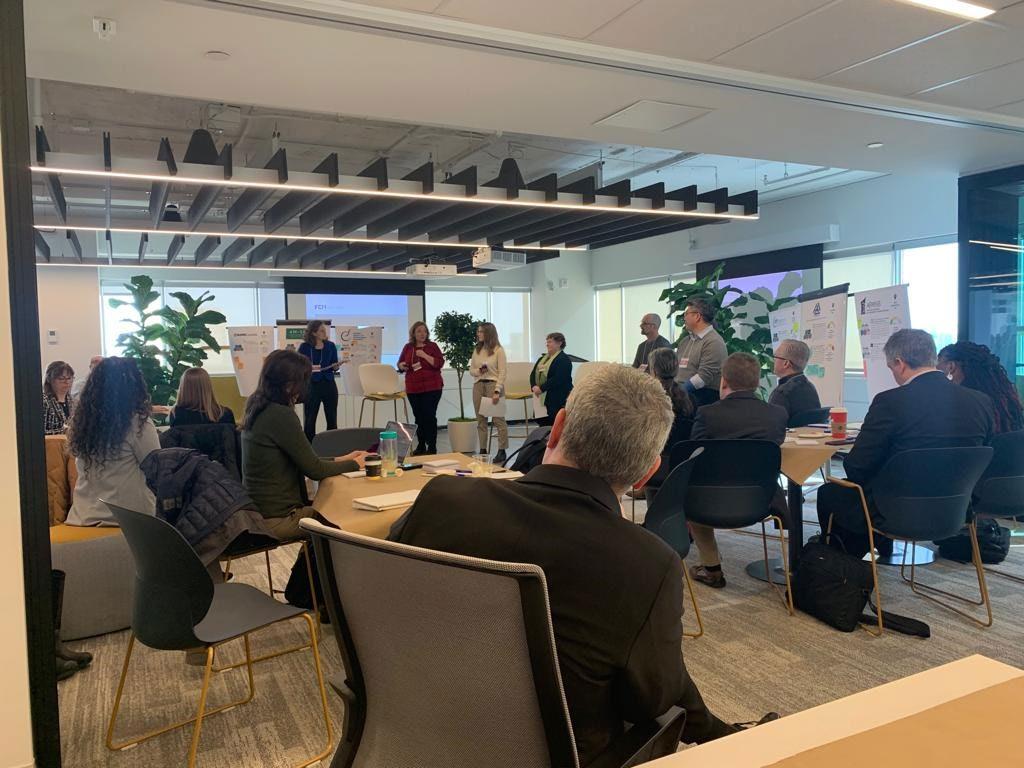

Almolah Sakir
Andre Ulloa
Andrew Doucette
Aseel Alfalahi
Ashley Medeiros
Ashvin Koarga
Blair Carmichael
Brad Pankiw
Brent Peddle
Brian Station
Chris Postill
Collin Halliwell
Cynthia Vaillant
Daniel Mireanu
Daniel Pellan
Dave McGowan
Dietrich Humbke
Dustin Kroeker
Gaganpreet Gill
Gordon Craig Baird
Holly Cullihall
Ian Reid
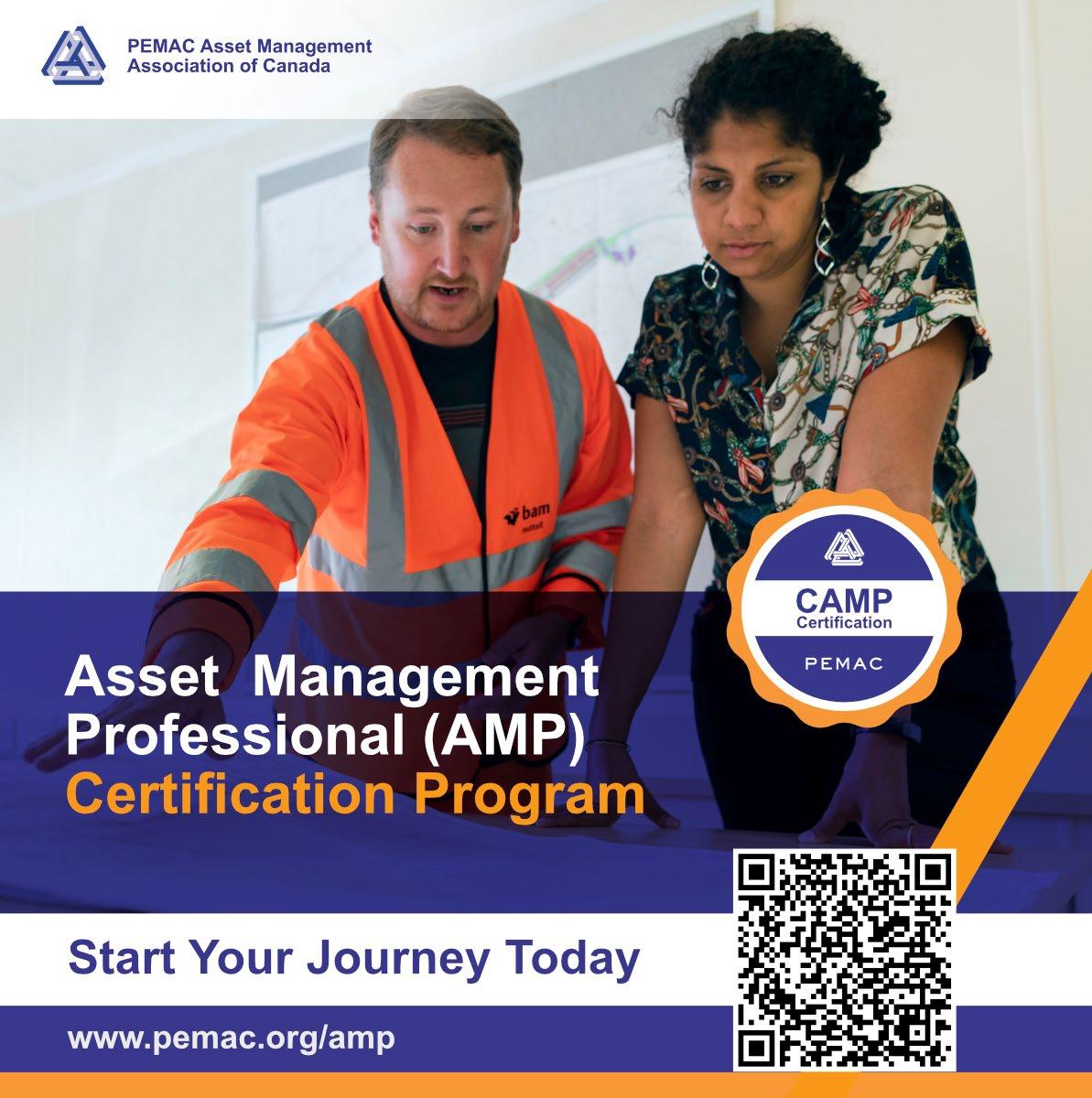
Ikechukwu Charles Ezeoru
Jamie Malthus
Jason Phillips
Jeevakumari Naveenan
Kara Smith
Karen Marchildon
Kyle Hamilton
Lee Anne Harder
Liang Hua
Lina Pacheco
Lorraine Doblanko
Lynton Gilchrist
Matthew Lambert
Michael Brown
Michael Dyson
Michael Ste. Croix
Mohsen Hidri
Neil Anyayahan
Philip Winsor
Quinton North
Ryan Shayegh
Shady William
Shane Ridley
Siddharth Suresh
Steven Toews
Travis Beck
Troy Sumner
Victor Kavhendekete
Aaron Ketch
Alex Doiron
Alison BordenNielsen
Andrew Carvalho
Anthony V Williams
Anthony Hart
Anthony Sandy Afful
Antonio Baruffa
Austin Tokarek
Bennett J Opheim
Bojan Rijic
Brad Buckles
Brett Coffin
brian haefner
Busani Dube
Carl Theberge
Carlo A Alvarado
Chris O'Rielly
Christopher Dufton
Christopher Rowe
Conrod Jackson
Curtis Andre
Dan Prevost
Dana Nielsen
Dany Tremblay
David Hartwich
David Tremblay
Dominic Fredette
Doris Poirier
Emeka Orji
Eric Martel
Eric Scott
Éric Tremblay
Fadi Yousif
Frederic Brunet
Gagandeep Singh
Pahwa
Geoffrey Peckham
Grace McLenaghan
Greg McPhee
Greg Sweet
Hayden Chuter
Hicham Sabir
Hien Trong Nguyen
Jamarley Samuels
Jason Legace
Jean-Marc Otis
Jeremy Manning
Jignesh Patel
Jitesh Patel
Joe Lourenco
John Fodchuk
John Mackenzie
Jolie Camps
Joseph Clark

Justin MacRae
Keith Untalan
Kenneth Goudie
Kevin Pasiechnik
Kyle Irvine
Lacina Tuo
Laird Khuu
Louis-Philippe Pagé
Luc Belanger
Luis Michael Villanueva
Paredes
Mallikarjun Kasturi
Mamaye Kouma
Marc Lapointe
Mark Austerman
Mark Mendonsa
Mathew Walden
Matthew E Dery
Matthew Lochran
Matthew Rhyner
Maxime East
Michael Chen
Michael Woods
Michel Hemankpan
Miro Kutlesa
Mouhamdy Mouadh
Muhammad Qaisar Rana
Nathaniel Donovan
Naveen Ramkissoon
Neethu Vettuthuruthel
Raju
Neil Pollock
Nicolas Lafreniere
Ony Tiana Andriana
Soloharimanga
Paul Camarata
Rick Baker
Ripal Shah
Rod Flint
Stephane Fortin
Stephen Robinson
Steven Dombi
Sylvain Gagne
Tim Tanguay
Tony Thomas
Trevor G Cook
Wesley Payne
These professionals have received their PEMAC recognition between May 15, 2022, and June 15, 2023.Aaron O'Neill
Ahmed Morsy
Ali Gamil
Ammar Bessam
Andrea Findlay
Andrew Ault
Andrew Fournier
Ashley Heath
Ashley Thompson
Brad Antle
Brad MacLeod
Brenden Sayer
Casey Padden
Chris O'Rielly
Christopher
McMahon
Christopher Rowe
Cordaro Rudell
Dana Duke
Daniel Parkes
David Vella
Don Sovyn
Duane Szyszka
Dustin Mayes
Dustin Watson
Emeka Ekwukwo
Eyitayo Fajinmi
Greg McPhee
Hibba Syeda
Hien Nguyen Trong
Isaias Alza
Jacques Richard
Jahangir Amiri
Jaime Abarca
James Townsend
Jason Franzen
Jeff Farion
Jennifer Horsnall
Jesse Brinkman
Jhones Vargas
Jimishakumari Patel
Joel Dauphinais
Jolie Camps
Joseph Stuckless
Kathy Langton
Kelly Moffat
Kevin Connell
Kimberly Lokszyn
Kyle Werstiuk
Kyle Wright
Laine Turner
Lashell Skage
Warnakulasuriya Fernando
Lovepreet Singh
Mark Joseph Cardenas
Mark Pio Ramos
Mark Wilcox
Matthew Dery
Matthew George
Mike Johnson
Mike Lodwig
Mitch Woodward
Mohamed Yusuf
Nathan Quiring
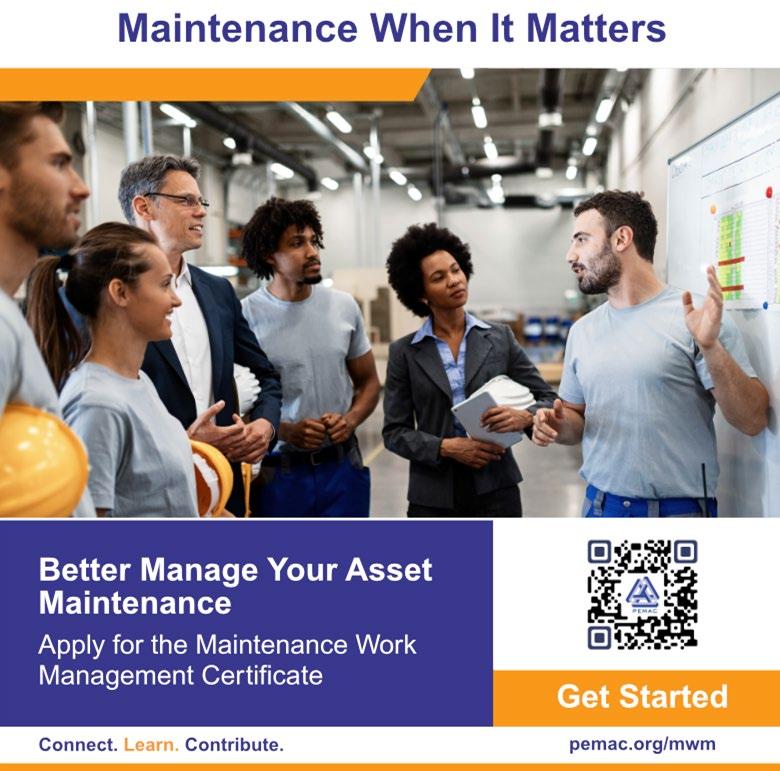
Tony Thomas
William S. Swiderski
William Stott
Xiaodong Chen
Neethu Vettuthuruthel Raju
Neil Martin
Nicholas McLeod
Olufola Olumekun
Patrick Chomyszyn
Philip Loiselle
Randy Mockerman
Richard Mintz
Riley Turchanski
Rob Ericsson
Ron Blood
Rony George
Ryan Adkins
Salimraj (Raj) Gopalakrishnan
Sanjay Mehrotra
Saravanan Alagarsamy
Shannon Mould
Shawn Wilke
Shivayogi Banagara
Smit Vikeshkumar Chokshi
Tara Munro
Thang Tran
Toluwase Isaac Oyetunde
These professionals have received their PEMAC recognition between May 15, 2022, and June 15, 2023.MainTrain 2023 in Winnipeg is shaping up to be, as usual, a great opportunity for PEMAC members and associates to “Connect, Learn and Contribute”.
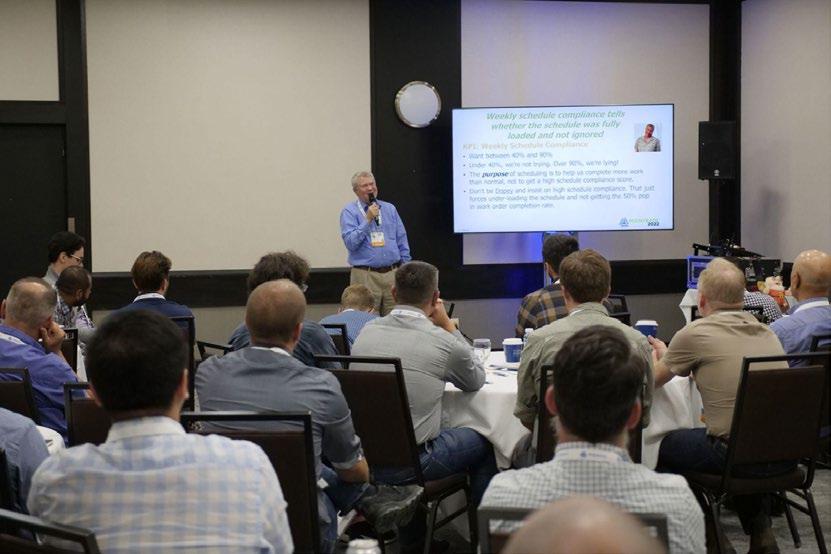
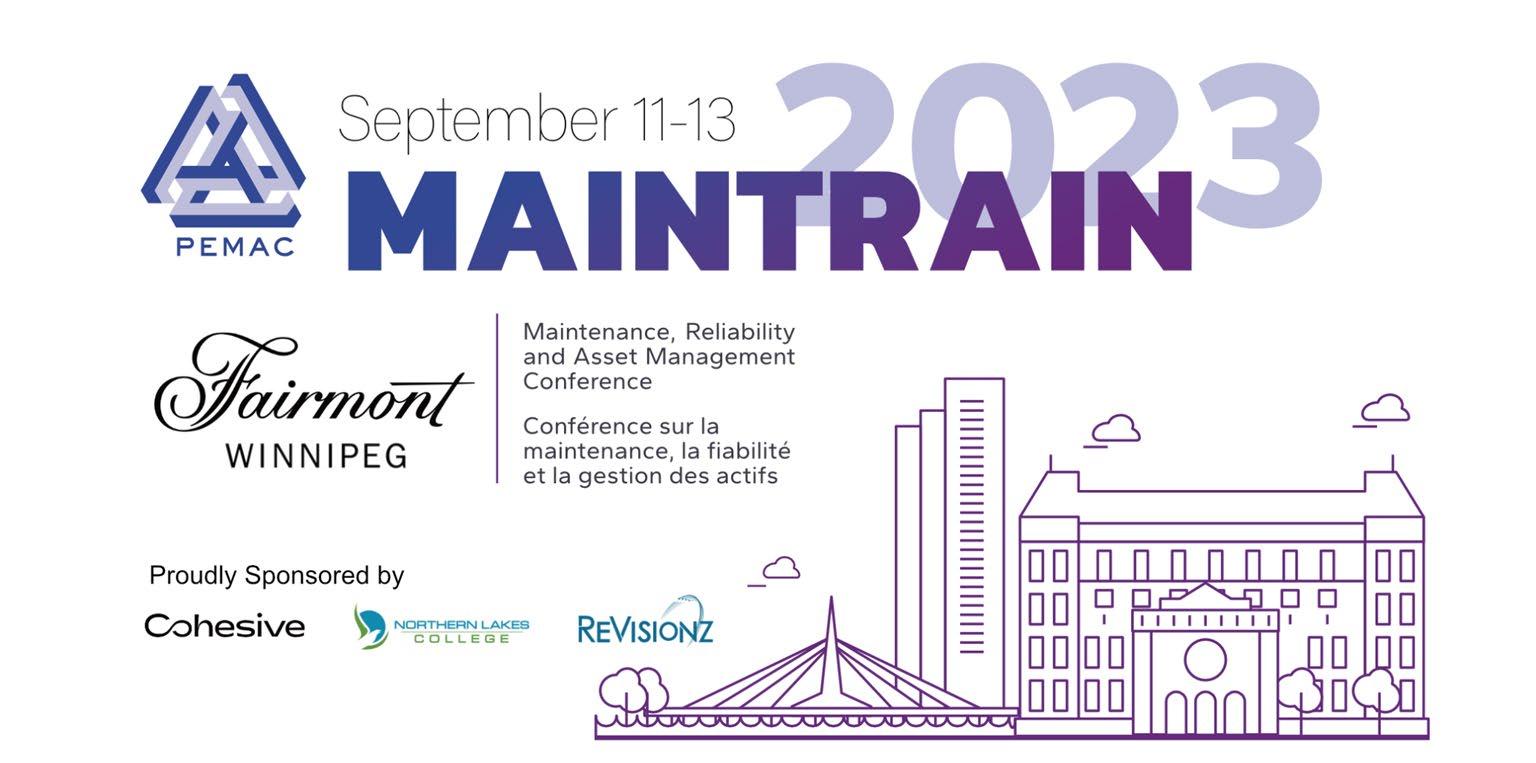
Some lessons learned from the pandemicnamely the capacity to host a conference online - are likely to remain as a permanent improvement. Once again in 2023 we will be extending the accessibility of MainTrain through online attendance options.

PEMAC will be hosting the Global Forum on Maintenance and Asset Management

Adjacently, PEMAC will be hosting meetings of the Global Forum on Maintenance and Asset Management (GFMAM) and the World Partners in Asset Management (WPiAM), providing opportunities for conference attendees to gain insights on maintenance, reliability and asset management from the delegates who will be attending from around the world.

We can’t wait to see you in September!

The PEMAC annual awards program was established with the aim of fostering excellence in maintenance, reliability, and asset management, while promoting knowledge sharing and professional growth among practitioners from diverse industries.


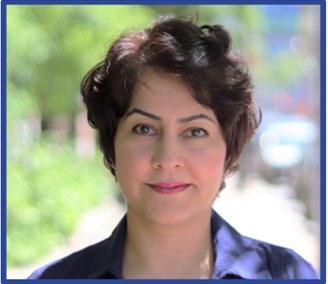
A look back at the 2022 Award Winners who have inspired others and driven innovation.

The awards recognize the outstanding achievements that individuals and teams are making towards improvements in maintenance management and asset management.


Nominations for the 2023 PEMAC awards are closed and are being reviewed by the Awards Committee. Join us in person at the Awards Dinner on September 12, 2023, taking place in conjunction with the MainTrain Conference in Winnipeg where this year’s winners will be announced.
It is PEMAC’s pleasure to recognize the excellent maintenance and assets management professionals across various disciplines in Canada!
Maintenance Management Suzane Greeman Asset Management Leadership Award Dr. Sharareh Taghiour Maintenance Leadership Award Blair Carmichael, CAMP AMP Capstone Award Abrar Ahmad, MMP Sergio Guy Memorial Award Asset Management Dana Nielsen, MMP MMP Capstone Award Business Process Focus Francis Ogamba, MMP MMP Capstone Award Technical Focus Member Award
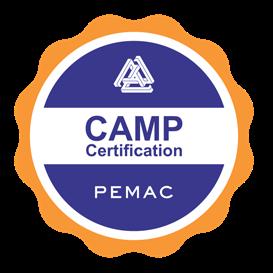

By definition, membership associations exist to serve their members – so ensuring your members are satisfied and engaged is a key strategic priority for every association. An association’s long-term success depends on delivering value to members so that they remain engaged, loyal and happy to renew their membership.
113 members responded. This represented a 69% increase from the 67 members who responded in 2021.
A profile of the respondents included:
55% over 50 years of age
Furthermore, member engagement is essential for growth. Engaged members not only renew but are likely to help increase membership via word of mouth. The better the value proposition, the stronger the organization.
60% working in the profession more than 20 years (61% in 2021)
66% in executive or management positions
44%
Understanding the relationship between members satisfaction with what an association is offering and what members value most is critical to developing strategies to improve member satisfaction and engagement. As the saying goes, if it’s not measured, it’s not truly managed. That’s why back in March we asked members to answer a range of questions and provide an opportunity to share their thoughts.
A mix of maintenance (44%), reliability (13%) and asset (36%) professionals, working across various industries, with the top 3 being:
• Mining, quarrying, and oil and gas extraction;
• Manufacturing;
• Public administration and government
78% hold a certification (71% in 2021)
34% first heard of PEMAC through an education program (37% in 2021)
7%
66% Executives & Managers
36%
13% Percentage of Member Primary Professional Focus Maintenance Reliability Asset Management Other
78% Certified in 2022 (↑7% from 2021)Members rated PEMAC program and services, offering the following:
80% rated the overall quality of PEMAC services as very good or excellent (43% rate the overall quality of PEMAC membership benefits as very good or excellent)
Top 3 rated programs/services (same top 3 in 2021):
• professional certifications;
• standardized curricula for maintenance management and asset management;
• website, followed closely by the Annual Conference and weekly news.
Top 3 reasons for maintaining membership:
• maintain certifications;
• access to news and information;
• stay informed about professional development opportunities.
New to this year’s survey was a series of questions around the volunteer program. 66% of members indicated awareness of the volunteer program, with 20% participating in some type of volunteer engagement.
The vast majority of surveyed members indicated a positive volunteer experience, noting the positive changes to a more formalized recruitment process, great onboarding process and the professionalism and great collaborative approach when volunteering. As a result, 100% of participants would recommend volunteering to a colleague; (79% in 2021).
The biggest takeaway from the survey was how much members value their membership, how likely they’re to renew it and how many would recommend joining to a colleague. In these regards, the survey says:
75% rate the value of membership as very good or excellent (69% in 2021);
90% are very likely or extremely likely to renew their membership (84% in 2021);
83% are very likely or extremely likely to recommend PEMAC membership.
We are pleased to report PEMAC members remain highly satisfied with membership value and the programs and services being delivered.
We are pleased to report that only two members experienced an issue with the organization, one related to membership registration, the other membership renewal, both of which were resolved to the member’s satisfaction.
What could PEMAC do more of?
More chapter activities.
Enhanced advocacy efforts.
Greater promotion of PEMAC and asset management and greater recognition of PEMAC certifications.
More diverse Lunch ‘n’ Learns.
An industry specific focus.
The information collected through the survey gives great insight into what members value and more importantly provides guidance on how we can offer incremental value to members. Based on the feedback received, we will explore opportunities to enhance the value of being a PEMAC member and look forward to sharing plans and activities in the near future.
A huge thank you to those who took the time to complete the survey. As always, we welcome your feedback.
Ian Flood won the 2021 AMP Capstone Award for his Capstone project on the Fort McPherson Diesel Power Plant Exhaust Gas Heat Recovery Unit in the Northwest Territories.
The AMP Capstone is the final project a participant must complete and allows participants to review the elements of the previous course modules and take the opportunity to bring the concepts together in an applied project that requires the development of an Asset Management Policy and Strategy for an organization as well as the development and implementation of an Asset Management Plan for a particular class of assets. This article is simply a short summary of that work.
The Northwest Territories Power Corporation (NTPC) generates, transmits and distributes power to 33 remote communities in the Northwest Territories. The Thermal Division within NTPC is responsible for the upkeep and maintenance of 18 standalone diesel power plants. Due to the remote and scattered geographic location of each power plant, none are grid-connected. This poses considerable logistical challenges in terms of geography, climate change and the long harsh winters experienced above 60°N. Consequently, there are significant operational challenges and risks with maintenance and capital projects in order to maintain the required level of reliability of providing continuous power to each community.
All the plants have a minimum of three generating units (gensets) for redundancy and reliability of supply of power to our customers. Each genset loses approximately 25% of the energy in the fuel to the atmosphere as heat energy in the exhaust gasses. In order to reduce this otherwise wasted energy, it is captured and used to heat buildings close to the power plant, such as the local school and the community water treatment plant. In order to recover this heat energy, it is necessary to pass the exhaust gasses through a specific type of heat exchanger. The Exhaust Gas Heat Exchangers (EGHE) are installed where there will be a long-term economic benefit to the community and the required infrastructure can be economically installed from the power plant to community buildings.
The photo to the above (Figure 1) shows one of the three EGHE units (green colored) units with the genset exhaust manifold leading to the edge. As the Asset Manager for the Thermal Division, it is my responsibility to initiate projects for power plant upgrades and replacements. I am also involved in some day-to-day activities such as resolution of operational issues that may arise and cause outages. Prior to accepting this role five years ago I was a project manager with NTPC overseeing a number of capital projects such as the new solar PV/Battery/Diesel microgrid plant in Colville Lake, a remote winter road access community just inside the Arctic Circle.
Before detailing some of the facets of the capstone project, what follows is an overview of the Asset Management (AM) Framework being developed within NTPC.
 Figure 1: An EGHE (colored green) installed in the plant downstream from the yellow colored genset.
Figure 1: An EGHE (colored green) installed in the plant downstream from the yellow colored genset.
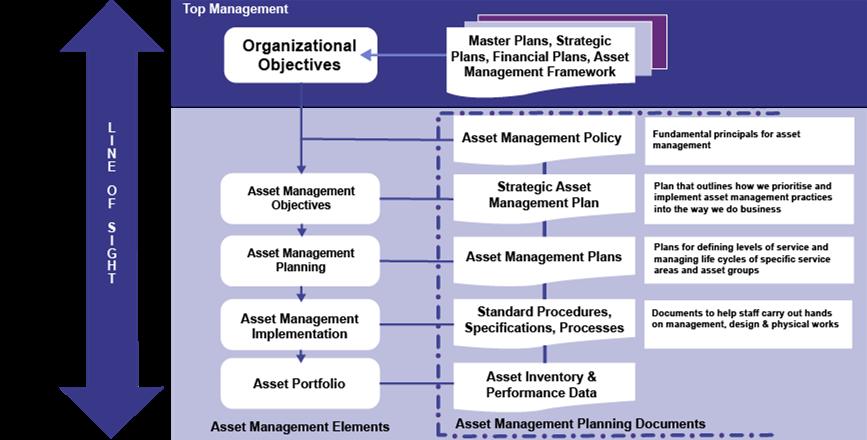
The AM Framework (Figure 2) provides the overall structure in which to fulfill the organization’s AM objectives. Within NTPC this has four key inputs. One is the Power Systems Plan listing each power plant and the following items, currently and forward-looking for the next twenty years:
• Identify the critical assets and determine the asset condition and the Asset Health Index (AHI).
• Major overhaul schedules and future configuration issues
• Load forecasting and demand analysis
• Performance statistics and benchmarking
• Business and other opportunities including the potential for renewable energy initiatives.
The second is the Capital Planning and Project Implementation Framework which is the process through which projects are selected, prioritized and executed.
The third is recommendations from annual powerplant inspections and asset health indices determination. The final one is unforeseen work.
ISO 55001 identifies the need for an asset management policy, a strategic asset management plan and asset management plans that align with the organization’s strategic plan and objectives. Particularly, in order to fulfill the scope requirements of ISO 55001:2014 Clause 4.3, the AM Framework will:

• Comply with requirements of Federal and Territorial Legislation, the Public Utilities Board (PUB), and our regulators.
• Apply sound technical, social, environmental, and economic principles that will consider the current and future needs of customers, employees, and keystakeholders in all stages of an asset’s lifecycle.
• Consider the interaction of the AM System with other management systems.
• Integrate asset management principles within the corporation’s capital planning, maintenance planning, and operational processes using specified decision-making processes.
To improve the heat transfer efficiency on the boiler, the unit controller will now operate the sootblower once per shift while the engine is running. More frequent operation of the sootblower will keep the finned tubes cleaner and this is being monitored for the resulting impact.
A further improvement is the adjustment of the Air Handling Unit (AHU) set point and maximizing the heat available for delivery to the community and thus reducing the plant heating load. Final performance figures have not been finalized at this time, although these changes are expected to increase revenue recovery and station service load by reducing the AHU motor's running time.
The AM Framework at the lowest level consists of the Asset Management Plans (Figure 3). The Capstone project discussed the AM line of sight documents consisting of the AM Policy document, the AM Strategy document, and the Strategic AM Plan. The focus now will be on the Asset Management Plan for the Exhaust Gas Heat Exchanger explaining that through operational experience its performance is being improved to realize maximum value from the asset.
The Capstone Project considered a review of the monitoring, maintenance and improvements for this asset. Additionally, risk analysis examined the scenarios where there may be a loss of service of the supply of building heat to the community and the expected level of service. The EGHE unit itself is relatively maintenance-free.
However, the ancillary equipment, such as timed automatic soot blowers, and damper controls require periodic maintenance consistent with normal operation. The cost of not carrying out regular maintenance will result in loss of revenue from the community for the supply of building heat.
To determine whether the EGHE is performing properly, the exit temperatures on the liquid and gas sides were monitored when the unit was newly installed to establish a base of comparable data. Any considerable variation would indicate one or both fouled heat transfer surfaces on the exhaust gas or water side of the heat exchanger and requires cleaning.
To improve the heat transfer efficiency on the boiler, the unit controller will now operate the sootblower once per shift while the engine is running. More frequent operation of the sootblower will keep the finned tubes cleaner and this is being monitored for the resulting impact.
A further improvement is the adjustment of the Air Handling Unit (AHU) set point and maximizing the heat available for delivery to the community and thus reducing the plant heating load. Final performance figures have not been finalized at this time, although these changes are expected to increase revenue recovery and station service load by reducing the AHU motor's running time.
The AMP Certification Certificate Course and the Capstone Project has helped me to structurally examine the major facets of asset management and document where the organization is in respect of achieving industry maturity and other standards. This has provided suggestions with which to form a framework for moving forward and implementing improvement measures. Some of these tools are AM Capability Development, the “Good to Great” Diagnostic Tool as a useful benchmarking exercise in order to generate ideas for future initiatives.
Finally, the NTPC Asset Knowledge Management maturity level was assessed against the PEMAC model. All these tools gave key insights for improvements as AM develops within NTPC. Remembering also as NTPC moves forward what an excellent guide the ISO55000 is to ensure all the AM requirements are considered.
AM is not just for senior managers and asset managers, but everyone in the organization has a role to play in ensuring asset management delivers maximum value from the assets.
Ian Flood is a Professional Engineer (P.Eng.), a Certified Asset Management Professional (CAMP) and Project Management Professional (PMP) with over 30 years of experience in managing teams in commercial shipping, submarine nuclear industry, project management, and asset management.
Ian has been working with the Northwest Territories Power Corporation (NTPC) since moving to Canada from the UK in 2012. After five years as a Project Manager for plant upgrades and replacements he accepted the Asset Manager position for thermal plants which he has been doing for the last five years.

Last Fall, PEMAC and the Society for Maintenance and Reliability Professionals (SMRP) announced that they had entered into an extended partnership agreement. For more than ten years, the associations have been successfully collaborating on several global initiatives. The Memorandum of Understanding (MoU) signed between the groups formally identifies additional avenues of collaboration through focused attention on education, certification, and networking opportunities.
The webcasts also shared the variety of recognition opportunities available for practitioners at all stages in their careers, including the competency-based certifications CTAM, CPAM, CSAM. Recordings of the information sessions are available on the PEMAC and SMRP partner pages.

In the coming weeks, SMRP will be hosting a webcast for PEMAC members sharing more information about the CMRP and CMRT certifications.
PEMAC hosted two information sessions for SMRP members, to introduce PEMAC’s Maintenance Management Professional (MMP) education program as well as the Asset Management Professional (AMP) program.
NETWORKING
PEMAC and SMRP have set up discount codes so that members of each organization will receive member pricing for all conferences and professional development events offered by both organizations. PEMAC members receive member rates on SMRP events, including the SMRP Annual Conference (October 16 to 19, 2023 in Orlando, Florida), official SMRPCO practice tests for the CMRP and CMRT exams, SMRP’s Best Practices Metric Workshop, webinars and more. Log into the PEMAC member portal and select “Discounts” to find the discount codes to access instant savings.
SMRP members receive member rates on the MainTrain conference, webcasts, lunch and learns and more.
To access the discount codes email info@smrp.org

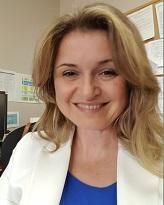
Nicolle Guillen, Education Manager at PEMAC, interviewed Mimi Miller, Asset Management Analyst at the Regional District of Central Okanagan. They discussed Mimi's role at RDCO and her experience in PEMAC's Asset Management Professional Program (AMP). Mimi participated in the inaugural offering of the program, which was delivered in collaboration with Northern Lakes College and supported by FCM MAMP funding from 2018 to 2020.
Over 120 municipal practitioners from across Canada joined Mimi in expanding their asset management knowledge during this cohort program. The special delivery has been offered three times, with over 400 municipal practitioners participating in one of the offerings.
Nicolle asked Mimi about her learning journey and the impact of the program on her role and organization.
NG: Please describe your municipality.
MM: The Regional District of Central Okanagan (RDCO is located on the unceded territory of the Sylix/ Okanagan people. This area is within the picturesque Okanagan Valley in British Columbia's Southern Interior.
The region is diverse, including thriving urban centres and vibrant rural communities between orchards, vineyards, and agricultural lands. The RDCO covers over 314,000 hectares adjacent to the shoreline of Okanagan Lake. Over 222,000 people call the region home, making it the fourthlargest urban area in the Province of B.C.
The RDCO as a form of local government unique to B.C. The Regional District provides services such as recreation, community park facilities, fire protection and garbage collection to homes and businesses within two electoral areas:

Central Okanagan East and Central Okanagan West.
The RDCO is also responsible for a wide range of regional services such as 9-1-1, dog control, parks, and waste reduction for the electoral areas and the member municipalities. In addition, the organization provides wastewater treatment services for the City of West Kelowna, District of Peachland, and Westbank First Nation.
NG: What is your role within the municipality?
MM: As the Asset Management Analyst includes a wide variety of tasks, such as:
Organization-wide asset management capacity building,
supporting asset lifecycle activities,
management of the District's Fleet,
supporting responsible financial management,
risk management, and
working towards Strategic Plan objectives.
NG: Why did you enroll in the AMP Program?
MM: The education offered by the AMP appealed to me because the program's delivery and content are based on imparting holistic asset management knowledge. The program provides hands-on experience in strategic planning, financial planning, organizational capacity building, risk management, and asset lifecycle planning.
Asset systems need to be understood, supported, and optimized to derive the greatest value for our communities.
- Mimi Miller, CAMP
NG: Do you think collaboration is important in realizing value from assets?
MM: In asset management, we constantly ask ourselves - 'how, given external demands, internal demands, and capacity, do we realize the greatest value from assets for our communities?' In my opinion, realizing value from assets requires collaboration based on a process of inquiry incorporating a broad range of stakeholders, including operations & maintenance (O&M) staff, finance staff department management, and customers.
Value means different things to different people. What is valued by one stakeholder group may not be the focus of another. What matters is bringing diverse needs and viewpoints together in collaboration to support sustainable outcomes.
NG: How has your participation in the program influenced your perspective of collaboration?
MM: I have always believed that diversity brought together through collaboration is necessary to create the best outcomes. This belief has been reaffirmed by completing the AMP program and becoming more familiar with the various systems and connections required to realize value from assets. Assets and asset classes are not isolated; they are connected to systems and processes throughout the organization and beyond. Asset systems need to be understood, supported, and optimized to derive the greatest value for our communities.
NG: How has your participation in the program influenced your perspective of collaboration?
MM: Generally, I reach out to external stakeholders when they are impacted by one of my projects. I also reach out to learn from the experience of others and to partner on projects that look to be beneficial to all parties.
MM (cont.): For example, we are collaborating with member municipalities and the Municipal Natural Asset Initiative (MNAI) on two projects: a regional natural asset inventory and a species at risk-critical habitat inventory.
NG: What benefits have you gained from participation in the AMP program?
MM: I have gained in-depth knowledge of asset management- related standards, principles, and practices, all of which are applied daily. I have also gained a strong network of professional connections that I am grateful for.

NG: Is it important for practitioners to utilize training opportunities to develop their skills and perspectives? Why?
MM: Yes, I believe training opportunities and developing skills keep our knowledge current. This allows us to apply the latest tools, techniques, and technical language in our roles. NOT A MEMBER ALREADY?
